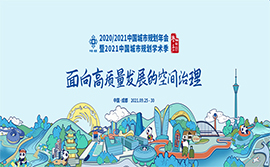

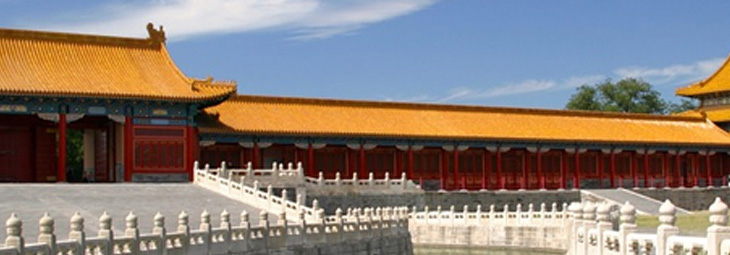
On September 25, 2021, the Annual National Planning Conference of China (ANPCC) (2020/2021) on the theme of “Space Governance for High-quality Development” took place in Chengdu, Sichuan Province.
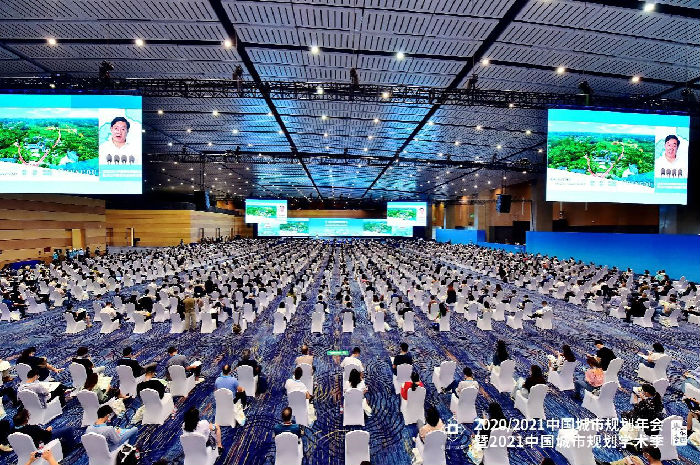
Plenary meeting of ANPCC(2020/2021)
The plenary meeting held on the first day includes the opening ceremony and keynote speeches. On the opening ceremony, Sun Anjun, UPSC President; Huang Yan, Vice Minister of Housing and Urban-Rural Development; Zhang Bing, Director of Bureau of Spatial Planning, Ministry of Natural Resources; Lv Zhaoping, Secretary of China Association for Science and Technology; Wang Fengchao, Mayor of Chengdu; and Martin, ISOCARP President, addressed the conference respectively.
Sun Anjun proposed that space governance plays a unique role in promoting the harmonious coexistence between man and nature, meeting the people's growing needs for a better life and realizing high-quality development. The high-quality development of urban and rural areas not only carries the people's desire for a better life, but also tests the government’s ability of space governance.
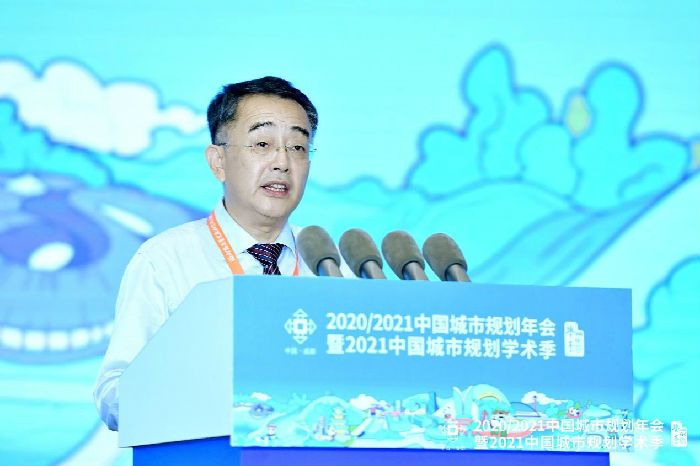
Sun Anjun, President of UPSC
Huang Yan shared her thinking on management measures and experiences in strengthening the protection and inheritance of history and culture, coordinating urban and rural development and security, and building an urban information model (CIM) platform.
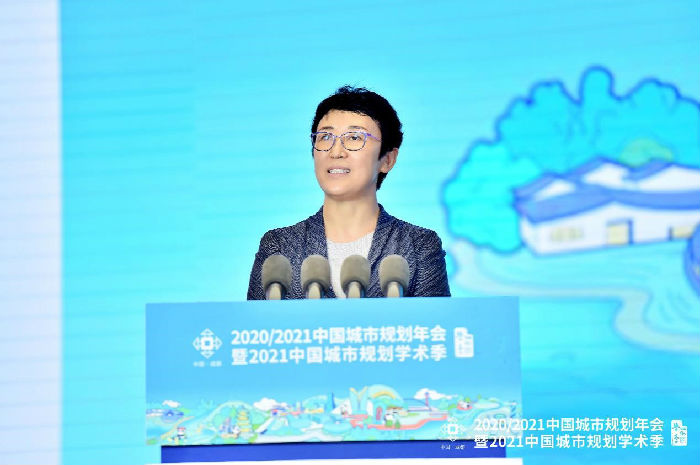
Huang Yan, Vice Minister of Ministry of Housing and Urban-Rural Development
Lv Zhaoping hoped the UPSC would always adhere to the goal of building a world-class society, assume the responsibility of bridging and linking scientific and technological workers, further strengthen academic exchanges, promote the integration of enterprises, colleges and research institutes, cultivate high-level talents, deepen international scientific and technological cooperation, and widely attract professionals at home and abroad to participate in the work of the society. He stressed that UPSC should continuously expanded its role and strongly support the new development pattern of scientific and technological community.

Lv Zhaoping, Secretary of the Secretariat, China Association for Science and Technology
Zhang Bing pointed out that "space governance for high-quality development" is the responsibility of China's “Multi- planning integration”. The planning profession needs to concentrate on the land and space planning system and put forward scientific and people-oriented planning solutions to major issues.
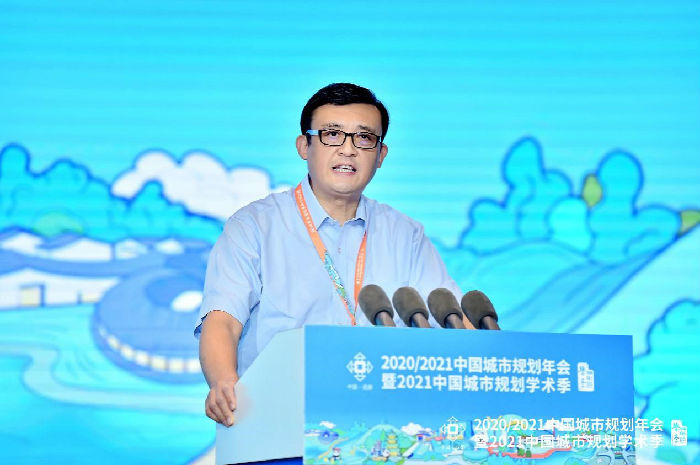
Zhang Bing, Director of Land and Space Planning Bureau, Ministry of Natural Resources
The mayor of a mega city with a population of nearly 21 million, Wang Fengchao stressed that it is necessary to carefully promote urban planning and comprehensively improve the urban space governance capacity under the leadership of building the “park city” demonstration area with new development concept.
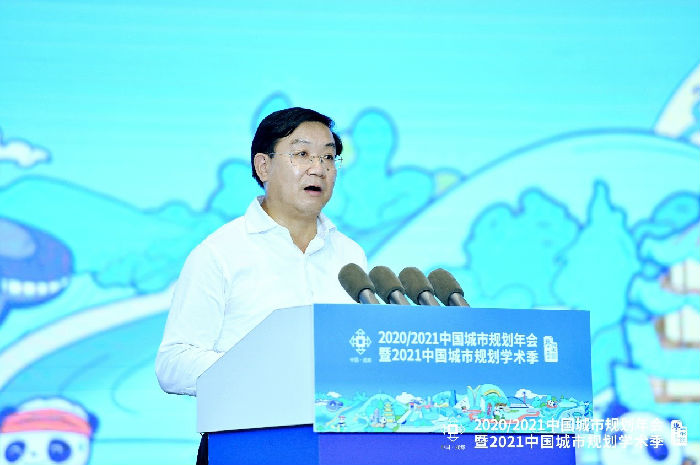
Wang Fengchao, Mayor of Chengdu City
President Martin mentioned that, thanks to the support of UPSC, ISOCARP has been active in various cities of China. The two organizations shoulder the same important task, i.e. making cities livable, green, sustainable, ecological, low-carbon and safe.

Martin, President of ISOCARP
The opening ceremony was presided over by Shi Nan, Executive Vice President and Secretary General of UPSC. He emphasized the need to ensure high-level space governance with academic, innovative and scientific planning to meet the development transition and planning challenges of the new era.
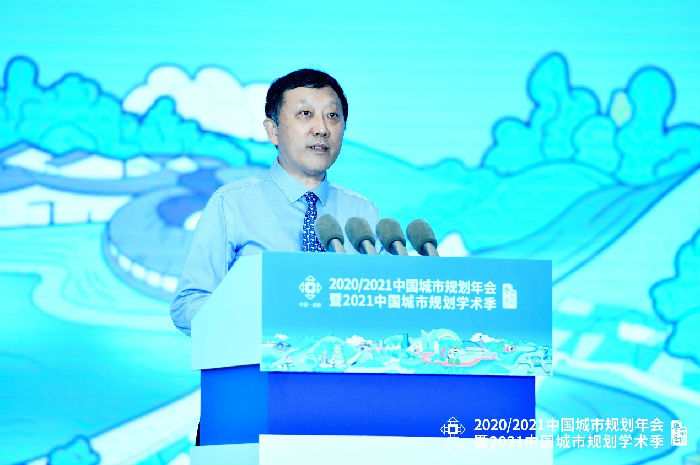
Shi Nan, Executive Vice President and Secretary General of UPSC
After the opening ceremony, Qian Qihu, Academician of CAEl Liu Yuquan, Vice Mayor of Chengdu Municipality; Tao Shu, Academician of CAS; Ding Lieyun, Academician of CAE; Cheng Taining, Academician of CAE; Yin Zhi, Professor of Tsinghua University; Wang Kai, President of CAUPD, and Wu Zhiqiang, Academician of CAE, made a keynote speech respectively.
Academician Qian Qihu stressed in his speech that the underground space should be developed and utilized to deal with the scarcity of limited land resources. In addition, he proposed to build resilient cities of Carbon neutrality in order to improve the capacity of waterlogging and disaster prevention.
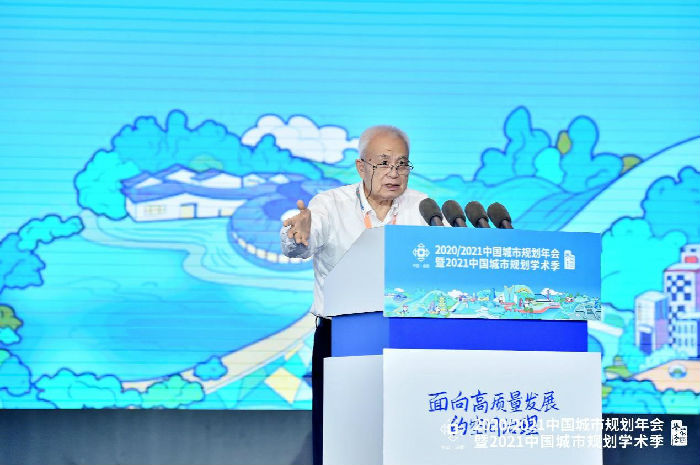
Qian Qihu, Academican of CAE
Liu Yuquan shared the experiences of Chengdu about garden city space governance and showed the advanced lessons of Chengdu in developing green and open urban space in recent years.
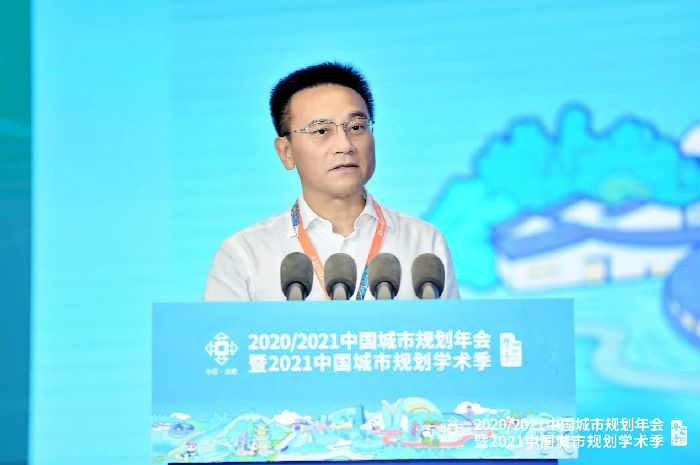
Liu Yuquan, Vice Mayor of Chengdu
Professor Tao Shu addressed on air pollution and its detriment. He believed that the reduction of air pollution is due to socio-economic development, law enforcement and emission reduction.
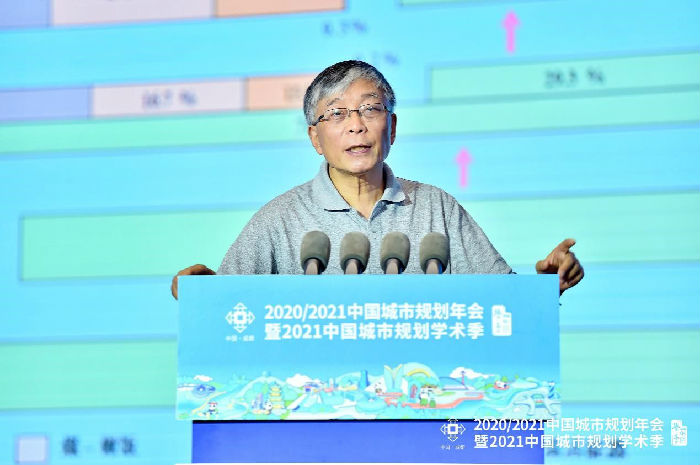
Tao Shu, Academician of CAS
Academician Ding Lieyun shared his views on the hot topics such as "carbon peaking, carbon neutrality" and "artificial intelligence". He believed that intelligent technology would promote new ways of urban construction and the innovation of intelligent technology could produce new mode of urban operation and maintenance. He proposed to develop new form of digital economy and enhance new experience of green life.

Ding Lieyun, Academican of CAE
Cheng Taining encouraged planners and architects to strive to be a planner and architect with great pattern, creativity and wisdom by sharing his creative thinking in combination with his typical works.
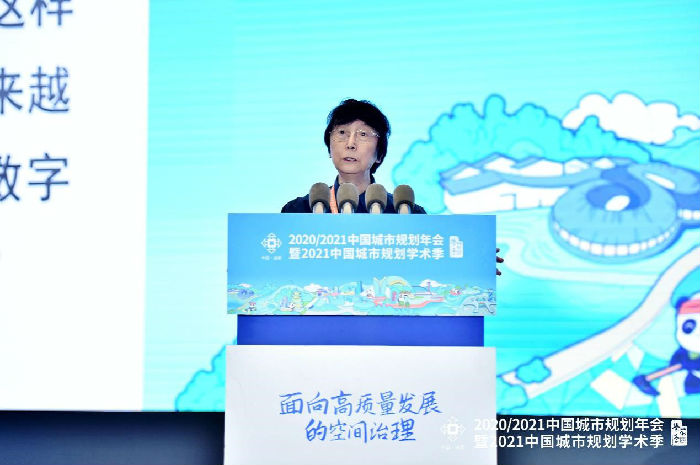
Cheng Taining,Academican of CAE
Professor Yin Zhi pointed out that it should promote the reform of capital assistance and authorization assistance in urban governance, realize the new urban governance function through urban renewal, so as to finally realize sustainable development.
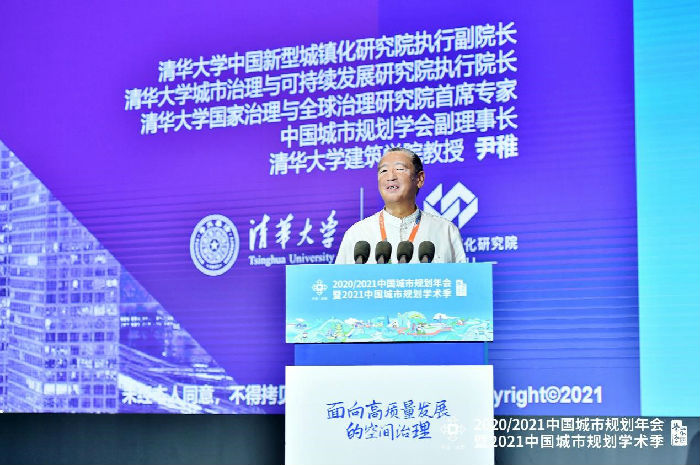
Yin Zhi, Professor of Tsinghua University
In his speech entitled "green transformation and development of China's urbanization", Wang Kai proposed that it is inevitable to develop a green and low-carbon path for China's urbanization. He advocated to establish and improve green and low-carbon policies and regulations in order to improve green growth and urbanization.
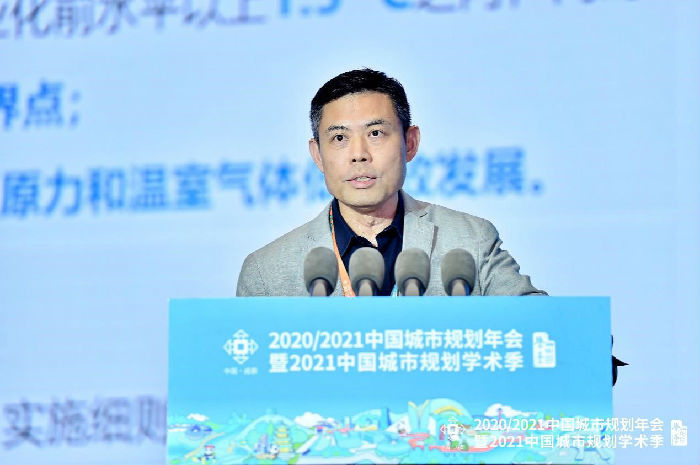
Wang Kai, President of China Academy of Urban Planning & Design
Academician Wu Zhiqiang pointed out in his speech that the characteristic of civilized space is compound ecology, which is composed of natural ecology, social ecology, facility ecology, innovation ecology, and digital ecology. He suggested that better space should be supported by better planning which will nourish better civilization.
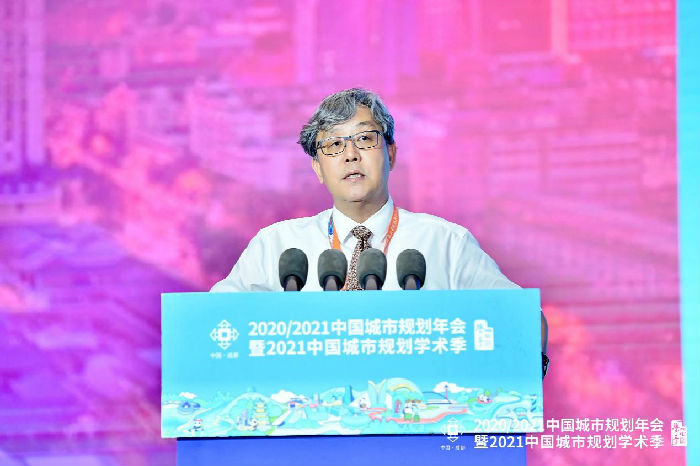
Wu Zhiqiang, Academican of CAEWu Zhiqiang, Academican of CAE
The conference lasted for 6 days, including one-day plenary conference, two-day parallel conference of 64 sessions and three-day online parallel conference of 60 sessions. Influenced by the epidemic control, the number of participants was reduced compared with the previous conferences, but there were still more than 6000 experts and scholars from universities, planning institutes and government departments attending the conference.
Photos from Conference
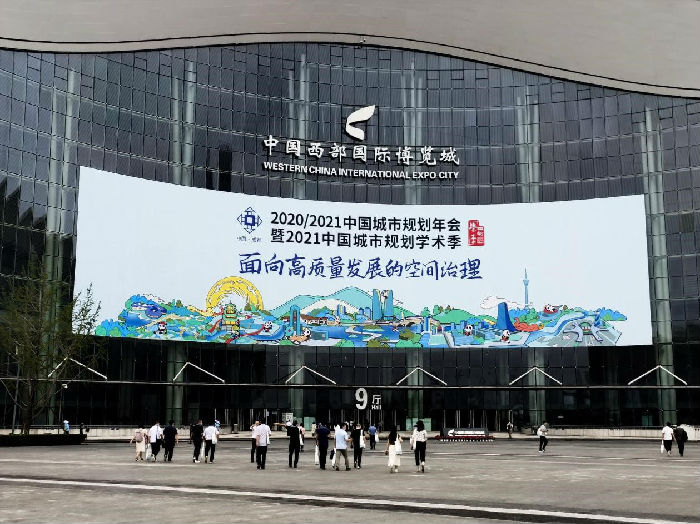
Entrance of plenary conference ( Photographed by Chai Ning)
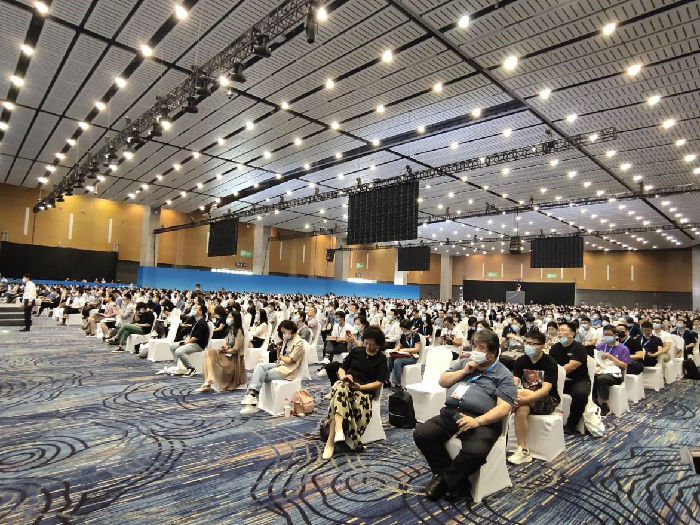
Participants listened carefully to the reports ( Photographed by Chai Ning)
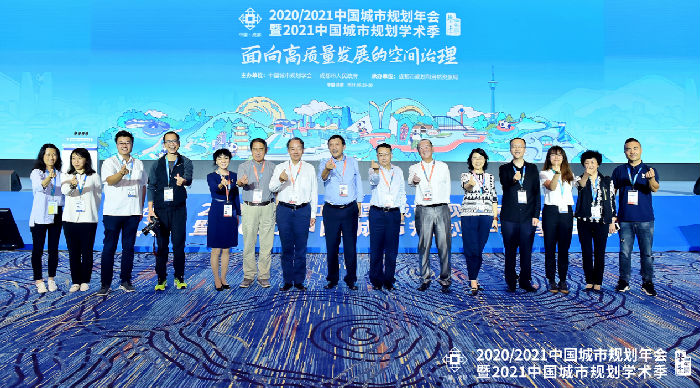
Group photo of Council and staff of UPSC (Provided by conference assistant group)

Group photo of Council and staff of UPSC (Provided by conference assistant group)
Source:<www.planning.org.cn>
Edited and translated by Chai Ning